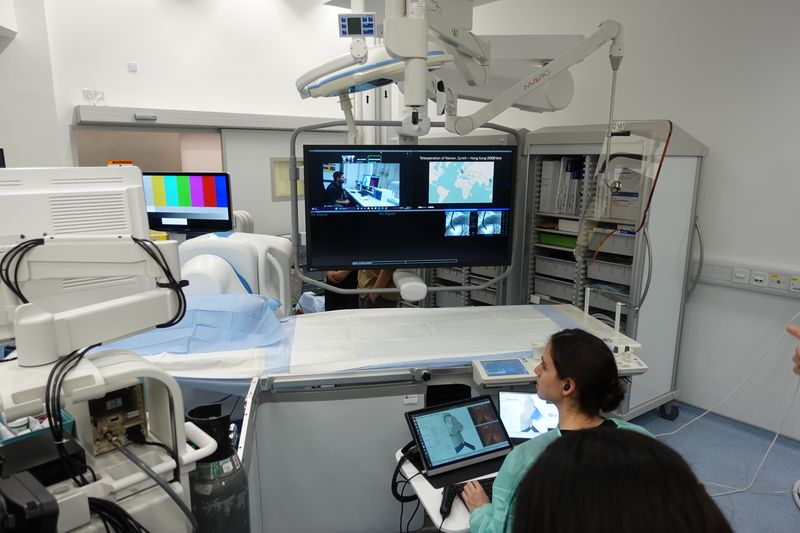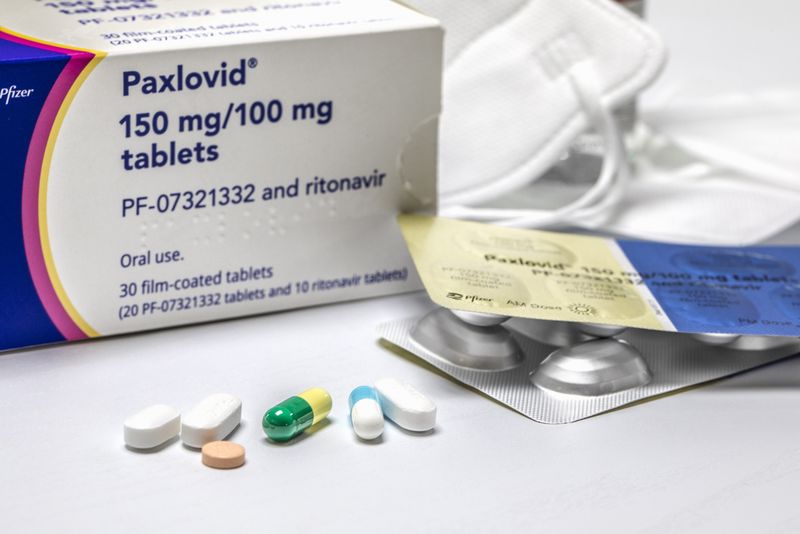A pig in Hong Kong recently underwent an endoscopy with a twist – the person operating the endoscope was sitting in a lab 9,300 kilometers (5,779 miles) away in Zurich, Switzerland.
The collaborative project between researchers at ETH Zurich and The Chinese University of Hong Kong saw researchers peering into the stomach of the anesthetized animal from half a world away, all thanks to a superfast internet connection and some clever robotic technology.
Using the joysticks of a PlayStation controller, doctoral student Alexandre Mesot was able to manipulate the endoscope in Hong Kong while watching the images on a screen in the lab in Zurich, with only a 300-millisecond delay.
The feat represents an impressive breakthrough in the field of telesurgery. The COVID pandemic has highlighted for many what can be achieved with telemedicine, but you’d presume that for a surgical procedure it’s helpful to actually have the surgeon present. However, the first transatlantic surgery took place way back in 2001, and since then people have been trying to push the boundaries of what can be achieved when surgeon and patient don’t have to be in the same room.
Recent advances have even seen scientists on Earth operating a surgical robot on the International Space Station (ISS) – but as impressive as that was, the ISS was only 400 kilometers (250 miles) above the lab in orbit. Operating the probe across distances of over 9,000 kilometers required careful planning and testing – not to mention a really stable connection. Mid-endoscopy is really not the time for your broadband to cut out.
In the operating room in Hong Kong, the pig was anesthetized by surgeons, who also inserted the endoscope safely through the mouth and into the stomach. It wasn’t just any endoscope – this one had been specially developed by the team at ETH Zurich to navigate via a magnetic field.
“Not only can the endoscope be bent in any direction thanks to its magnetic head; it’s also smaller and easier to manoeuvre than conventional devices,” said Mesot in a statement.
It’s so flexible that after taking control of the endoscope from Switzerland, Mesot was able to manipulate it to bend the head backwards by 180°, giving a view of the stomach entrance. A tiny gripper allowed Mesot to take tissue samples from the stomach wall.
Because the endoscope is smaller than usual while still being so maneuverable, it could potentially be used in human patients via the nose rather than the mouth. This is much more comfortable for patients and means they can have lighter sedation, as well as being more size-appropriate for kids.
“In the next step of our research, we hope to carry out a teleoperated endoscopy on a human stomach,” said Professor Bradley Nelson of the Multi-Scale Robotics Lab at ETH Zurich. “There’s a lot of potential in this technology. Here I’m thinking of minimally invasive procedures in the gastrointestinal tract, such as cancer screening.”
Incidentally, the pig (as far as we’re aware) survived the procedure unscathed and likely unaware of just how momentous its morning had been.
The study is published in the journal Advanced Intelligent Systems.





